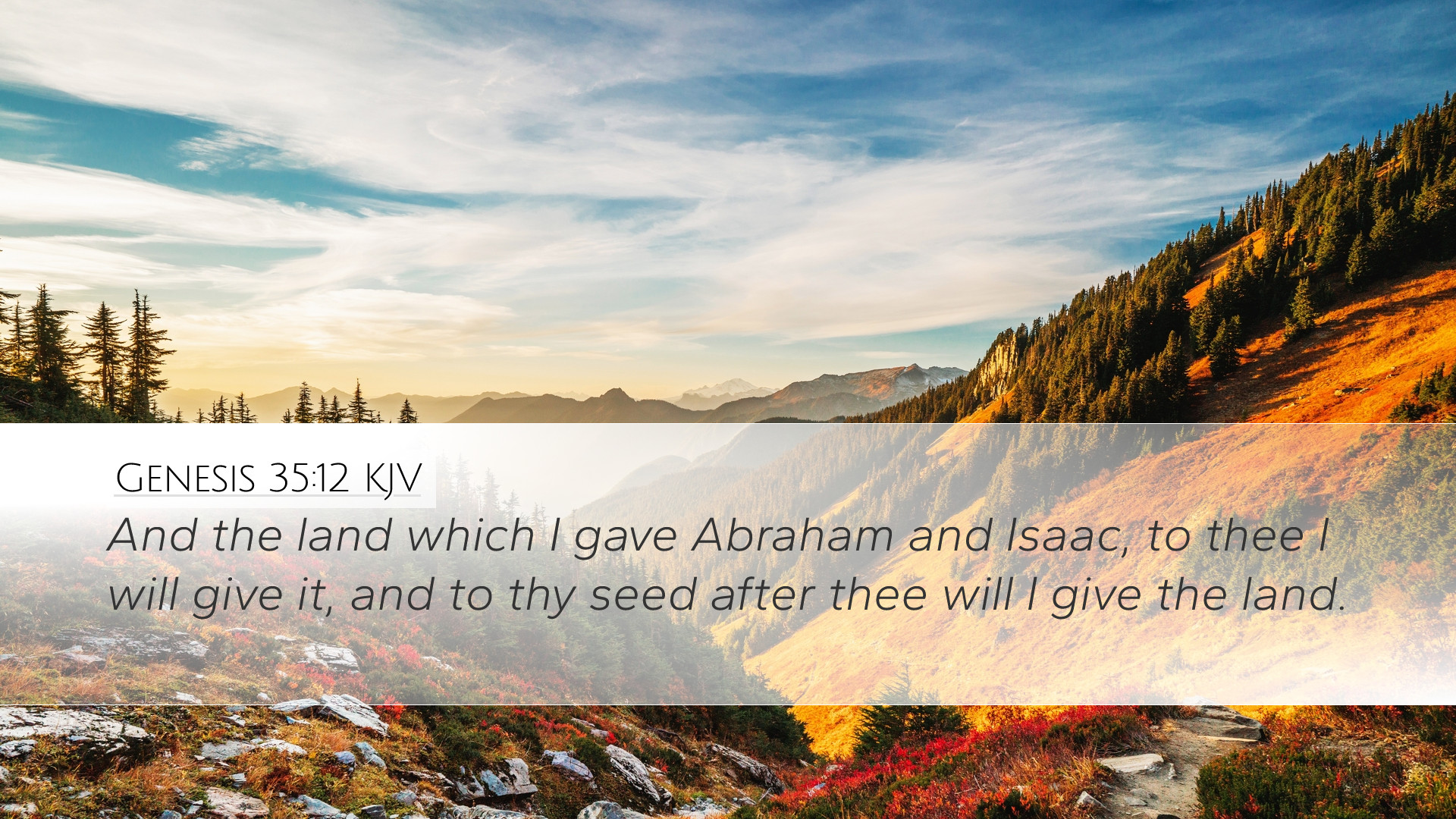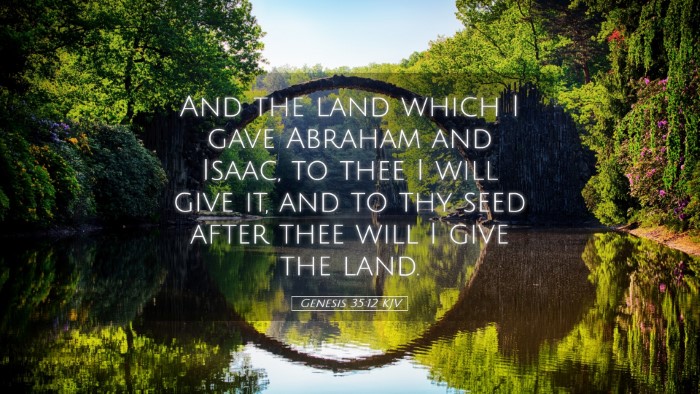Commentary on Genesis 35:12
Genesis 35:12 states: "And the land which I gave Abraham and Isaac, to thee I will give it, and to thy seed after thee will I give the land." This verse encapsulates God's reaffirmation of His covenant promises to Jacob and his descendants. The rich theological implications and historical significance of this promise have been examined by various biblical scholars throughout the ages.
Contextual Background
To appreciate the depth of this verse, we must consider the broader narrative of Genesis. Jacob, the patriarch, finds himself once again in a pivotal moment, having returned from his sojourn in Haran. His divine encounter with God at Bethel had previously confirmed his role in the Abrahamic covenant. With this verse, God reinforces that covenant, establishing the continuity of His promise through the generations.
The Covenant's Significance
The covenant established with Abraham, Isaac, and now Jacob is of paramount importance in biblical theology. Matthew Henry emphasizes that this promise is unconditional, rooted in God's sovereign will rather than human merit:
Matthew Henry: "This promise is expressed with a seriousness that underscores its unbreakability; it is a divine declaration affirming that the land belongs exclusively to the heirs of the covenant."
The Land of Promise
The land referenced in Genesis 35:12 is not merely a geographical territory; it symbolizes God's faithfulness and the future inheritance for Jacob's descendants. Adam Clarke remarks on the theological implications of the land promise:
Adam Clarke: "The land is ultimately an inheritance that foreshadows the establishment of God's kingdom on earth; hence, its significance transcends mere possession, pointing to God's eternal plan."
Literal and Spiritual Interpretation
The promise carries both literal and spiritual interpretations. Pastors and theologians often emphasize the importance of understanding this duality:
- Literal Interpretation: This refers to the physical land of Canaan assigned to the Israelites as their heritage.
- Spiritual Interpretation: It speaks to the deeper spiritual inheritance available to all believers in Christ, who is viewed as the fulfillment of God’s promises.
The Nature of God's Promises
God's promises are often accompanied by reminders of His past faithfulness. Albert Barnes elaborates on this aspect, noting the historical context surrounding the promise:
Albert Barnes: "In recalling the covenant, God urges Jacob to remember the journey of faith initiated by his forefathers. The continuity of faith is established through God's action."
The Role of Faith in the Covenant
As God presents this promise to Jacob, it requires a response of faith. Henry points out Jacob's faithfulness, highlighting the necessity of personal engagement with divine promises:
Matthew Henry: "Faith is the means through which these promises are activated. Jacob's willingness to trust in God's proclamation is a model for us."
Encouragement for Believers
For modern believers, the verse serves as an encouragement to rely on God's faithful character amidst life's challenges. Clarke notes:
Adam Clarke: "The assurance that God is with us and that His promises remain intact, even through hardship, empowers us to move forward in our spiritual journey."
Conclusion
In conclusion, Genesis 35:12 is a profound declaration of God’s faithful engagement with His people, echoing throughout the course of biblical history. It is not merely about land but symbolizes the intimate relationship between God and His covenant people. For pastors, theologians, and scholars, this verse invites deeper reflection on the themes of promise, faith, and the nature of God’s eternal plans for humanity.
Reflection Questions
- How does understanding the context of Genesis 35:12 affect our interpretation of God’s promises today?
- What parallels can we draw between Jacob's circumstances and our current spiritual challenges?
- How can we encourage others to trust in God's promises in times of uncertainty?


